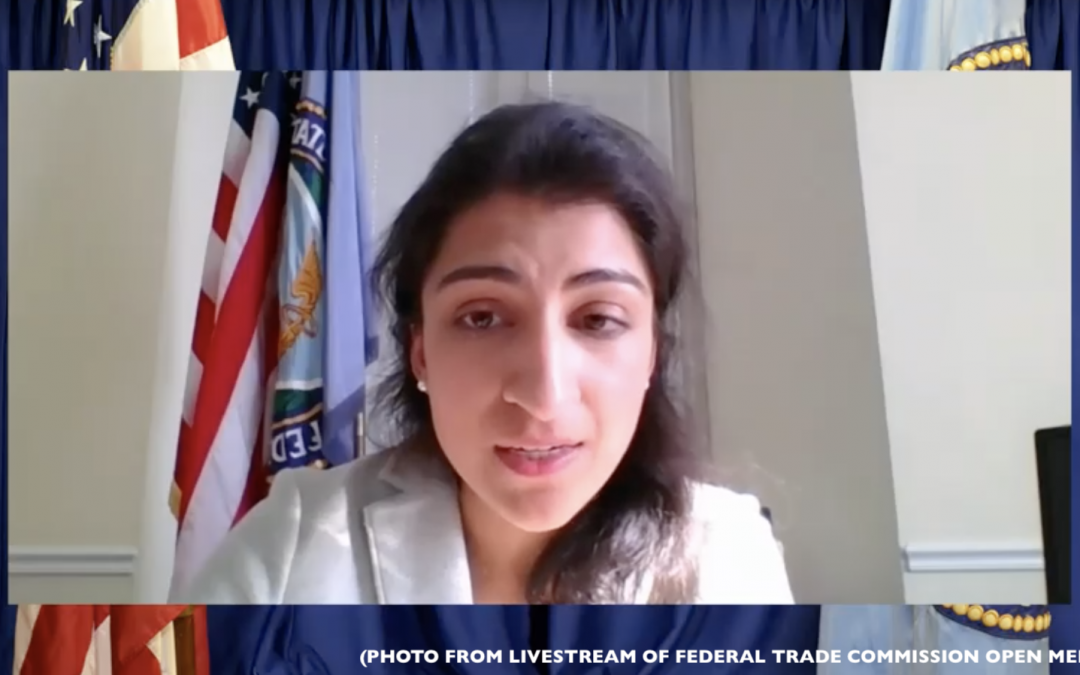WASHINGTON — With a global supply chain embroiled in pandemic lags, the Federal Trade Commission Thursday tabled until next Wednesday its decision on whether to study how large retailers have contributed to the supply shortages, especially among small businesses.
“I look forward to the commission nimbly deploying its tools to understand the sources of supply chain disruptions,” Federal Trade Commission Chair Lina Khan said. “This may be really pushing our nation’s small grocers, family farmers and ranchers and other small independent businesses to the brink.”
If the motion passes, the FTC would use its oversight powers under Section 6(b) of the FTC Act to collect information from “large retailers and consumer goods suppliers” related to how and why consumers are affected by supply chain disruptions. However, FTC Commissioner Noah Phillips and others supported giving staff another week to make the questions and document requests more specific and to better define the scope of the investigation.
“We have to design a study that asks the right questions of the right targets,” Phillips said. “And when it is as big an issue as the supply chain disruption that our economy faces here, specifically on consumer products, we should be comprehensive.”
One area likely to be included in the study is the effect of supply chains on consumers at the grocery store. The public comment section that opened the meeting painted a picture of the stacked deck that small grocers have faced for years in competition with the big chains.
Cheryl Sommer, whose family owns Kaune’s Neighborhood Market in Santa Fe, New Mexico, was one of a handful of small and medium-sized grocers who testified that they are experiencing shortages that larger stores have avoided. In the case of Kaune’s, this means its mainly elderly customer base sometimes goes without basic paper products and food staples, she said.
“Our customers’ cars cannot always get to the bigger stores safely. So if we don’t have the essentials, they don’t get the essentials,” Sommer said.
Multiple experts underscored the ways in which large retailers and grocers have used their market power to stay fully supplied to the detriment of local stores. Matt Stoller, director of research at the American Economic Liberties Project and an expert on monopolization, focused on the problem of “power buyers,” who can get better pricing terms or supply availability than smaller competitors.
“Walmart, for instance, often tells its suppliers they must deliver on time 98% of the time or it will fine them 3% of the cost of goods,” Stoller said. “It’s no surprise that Walmart stores are fully stocked while other retailers cannot get access to basic goods.”



